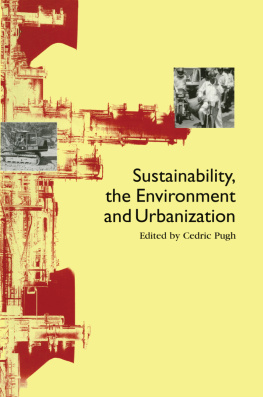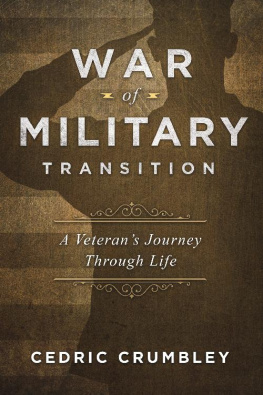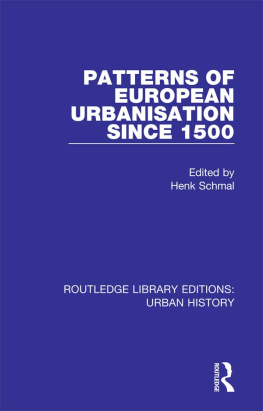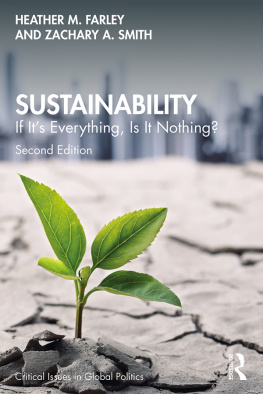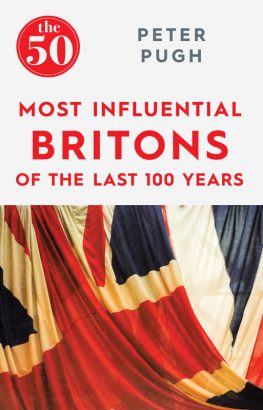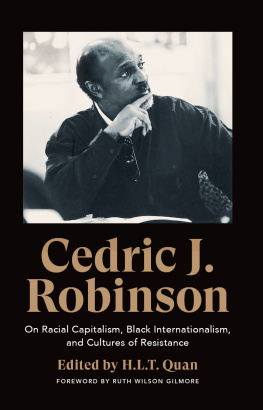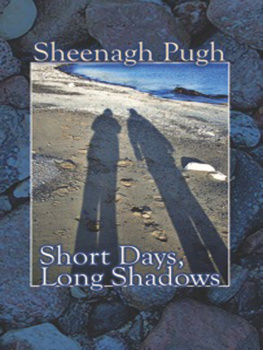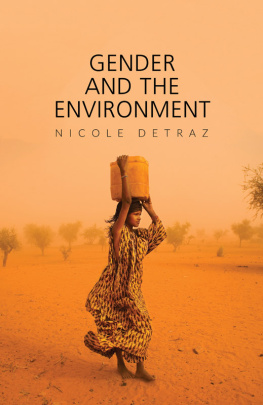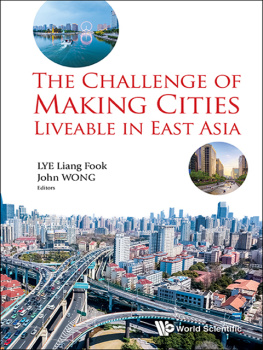SUSTAINABILITY, the ENVIRONMENT and URBANIZATION
This book is dedicated to disabled scholars and to the disabled poor in the developing countries
SUSTAINABILITY,
the Environment and Urbanization
Edited by
Cedric Pugh
First published by Earthscan in the UK and USA in 1996
For a full list of publications please contact:
Earthscan
2 Park Square, Milton Park, Abingdon, Oxon OX14 4RN
Simultaneously published in the USA and Canada by Earthscan
711 Third Avenue, New York, NY 10017
Earthscan is an imprint of the Taylor & Francis Group, an informa business
Copyright Cedric Pugh, 1996
All rights reserved. No part of this book may be reprinted or reproduced or utilised in any form or by any electronic, mechanical, or other means, now known or hereafter invented, including photocopying and recording, or in any information storage or retrieval system, without permission in writing from the publishers.
A catalogue record for this book is available from the British Library
ISBN: 978-1-85383-357-1 (pbk)
Copy-edited and typeset by Selro Publishing Services, Oxford
Contents
Cedric Pugh
Diana Mitlin and David Satterthwaite
Trudy Harpham and Edmundo Werna
Charles L Choguill and Marisa B G Choguill
Gordon McGranahan, Jacob Songsore and Marianne Kjelln
Cedric Pugh
Peter M Townroe
Ernie Jowsey and Jonathan Kellett
Cedric Pugh
To engage discussion on sustainable development is to be open to a diverse range of concepts, meanings and relevant applications. Nevertheless, an editor of a book should have some purposes, some boundaries and some directions. The boundaries were related to urbanization and especially to developing countries, though these boundaries necessarily had to have some contact with recent histories of environmentalism, with selected aspects of economic development, and with a new and growing literature which addresses the idea of sustainability. Purposes and directions for the book have very much been influenced by a mid-1990s context in which the urbanization aspects of research in sustainable development are surprisingly thin. Nevertheless, a number of urban specialists had commenced empirical studies in cities in developing countries or had started to develop some interesting conceptualizations and interpretations. A few urban specialists had a continuity of experience in environmentalism, dating from the 1970s. Thus the purposes and directions were set as drawing together the new research, and placing it within reflective characteristics of writing. The empirical content would primarily cover environmental conditions in large cities in developing countries, supported by review and evaluation chapters on infrastructure and developments in international health programmes. Conceptualization and interpretation were selected in application to broad structural economic changes in cities, to the changing nature of sustainability, and to the dependence of sustainable development upon institutional, social and political conditions.
At the outset it was clear that the researchers had earlier given thought to meaning and interpretation in the idea of sustainability and its relationship to development. However, as with the case in the wider literature, the authors had differing perspectives and arguments. My role as editor was not to compress thinking into any prescriptive definition, but care was taken to exchange some ideas on ecological, economic and social sustainability. The book has some bias in selection, mainly reflecting the present availability of good urban environmental research. Good arguments could be presented that the urban-relevant evaluations of greenhouse gases and of environment law should be included among the chapters. However, specialist urban research in these spheres is currently quite thin and elaborated treatment of these topics will have to wait on future work, though some authors in this volume do refer to these matters.
A book should do more than report progress in research. In a subject such as urban sustainable development interests and concerns for policy should have some thematic awareness and treatment. Policy issues are strongly to the fore in most chapters. Also, new research should be examined for its contribution to the development of knowledge in this emerging subject specialism. The final chapter has a commentary on the development of knowledge.
The production of a book such as this one owes much to collaboration. I have been grateful to the contributing authors who had to work to tight deadlines, to my secretary, Lynn Fox, and to Jonathan Sinclair Wilson and Jo ODriscoll at Earthscan.
Cedric Pugh
April 1996
One of the major themes in the book is the interrelatedness of many problems in urban environments. For example, the reduction of childhood health risks depends upon the education of mothers and carers. In its turn, better health induces improved attendance at school, and, in the longer term, this can increase GDP and reduce the incidence of poverty. The authors in the book give emphasis to the multi-faceted nature of sustainable urban environments, and, at the time of first publication, sometimes anticipated that ideas for the environment and development would change in due course.
Some important policies changed at the World Bank during the years 1997 to 2000, with new strategic policies joining together development, urban and poverty reduction policies. The World Development Report 19992000, Entering the 21st Century, brought urban agglomeration economics into the centre of development policies. Next, the urban strategic report Cities in Transition revealed the theory and statistics indicating the characteristics of cities as engines of growth. It also advocated poverty reduction, improved governance and sustainability as the major guiding principles for liveable cities. All of this was consolidated and, again, joined together, in the World Development Report 20002001, Attacking Poverty.
This book continues to have significance for intellectuals and practitioners who wish to have an interrelated view of environmentalism, poverty and development.
Cedric Pugh,
January 2001
Charles Choguill is Professor of Town and Regional Planning at the University of Sheffield, UK. In addition, he is director of the Universitys Centre for Development Planning Studies and editor of the journal Habitat International. He has had extensive consulting experience with the Asian Development Bank, the United Nations Development Programme, the International Civil Aviation Organization and the Arab Planning Institute, Kuwait. He is author of, among other books, New Communities for Urban Squatters: Lessons from the Plan that Failed in Dhaka, Bangladesh and co-editor of the Asian Development Banks Urban Policy Issues. Charles Choguills correspondence address is: University of Sheffield, Centre for Development Planning Studies, Sheffield, S10 2TN, UK.
Marisa Choguill is an architect who also holds Masters and PhD degrees in Urban Planning. She has taught architecture, landscape architecture, urban design and urban planning for more than 15 years in Brazil. Since coming to the United Kingdom in 1988, she has been a research officer at the University of Sheffield Centre for Development Planning Studies and taught at Sheffield Hallam University. A number of her papers have been published in


